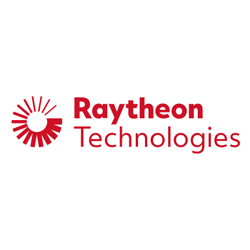How open source is fuelling an explosion in fintech innovation
- by 7wData

The open nature of fintech is a clear break with traditional financial services. Where incumbent businesses have complex legacy IT systems – often developed over decades – the new fintech companies are small and agile, using open services to build their applications.
As consumers have continued to embrace digitisation in every part of their lives, they are driving the digitisation of the financial services they use, with payments leading the way.
The open technologies that fintech services are built upon are new and speak to the new age of financial services in the palm of consumers' hands.
"Fintech firms are establishing themselves not only as significant players in the industry, but also as the benchmark for financial services," states Ernst & Young in its Fintech Adoption Index.
"Their new propositions are increasingly attractive to consumers who are underserved by existing financial services providers, and their use will only rise as fintech awareness grows, consumer concerns fall, and technological advancements, such as open APIs, reduce switching costs."
The blockchain is a central technology that many fintech services have built themselves upon, especially across the P2P payments space. AI, Big Data and the cloud are all vital components of the services fintech companies are innovate with. Together with open APIs and intuitive UI's, these technologies form a new toolbox that each startups, in particular, are exploiting.
APIs have clearly had the most impact on the burgeoning fintech sector. Indeed, without them, these services could not exist. The API economy has been developing since the inception of the internet. Today, companies routinely develop APIs as a product to help businesses connect with their services.
"In today's world, where on-demand is everywhere, and AI is at the centre of the way we interact with our products, customers want the same user experience across all aspects of their life," says Ajay Vij, SVP of financial services at Infosys.
"Startups that are able to leverage technologies such as these; those that are built from the ground up in today's mobile-centric world, are often able to better serve their customers through technology, whether that be predictive in-app customer support, machine learning powered product recommendations, or true omnichannel presence across all their devices."
For businesses across the fintech space, the diverse range of APIs and other technologies enables them to exploit niche markets with highly targeted apps. The most innovative apps are now also combining APIs from several sources with data, which is then analysed with AI technology.
The real winners here are the consumers who now have a rich landscape of financial apps they can choose from to meet their precise needs.
With many of the leading fintech services built on the same technologies, this creates a culture of easy switching between applications, which has become highly popular with fintech early adopters. Users want frictionless financial services that either seamlessly work together or allow easy and secure switching.
They also tend to be platform agnostic, moving with trends or via cultural popularity across their social media networks. A great example is the rise of the sharing economy that is supported with mobile apps that use fintech services to make bookings and take payments.
The reason that fintech applications are so powerful is that they are all built on well-understood, open source tools and frameworks. The back end that fintech services use is invariably built using Java with the Spring Framework, favoured for its excellent security features. Other options do exist, including SDK.finance and .Net.
When it comes to building fintech apps themselves, a great deal of effort is placed on developing the user interface.
[Social9_Share class=”s9-widget-wrapper”]
Upcoming Events
Evolving Your Data Architecture for Trustworthy Generative AI
18 April 2024
5 PM CET – 6 PM CET
Read MoreShift Difficult Problems Left with Graph Analysis on Streaming Data
29 April 2024
12 PM ET – 1 PM ET
Read More




